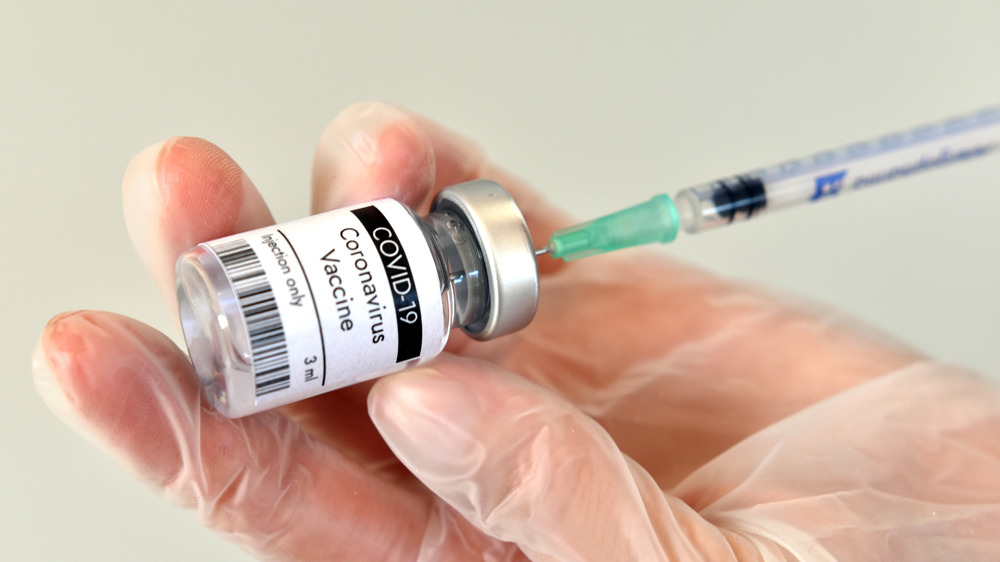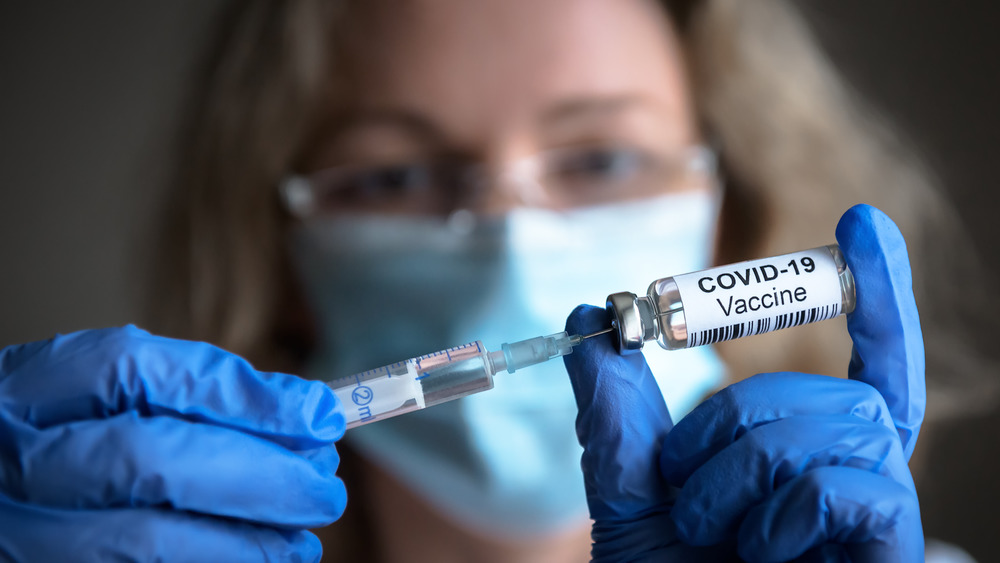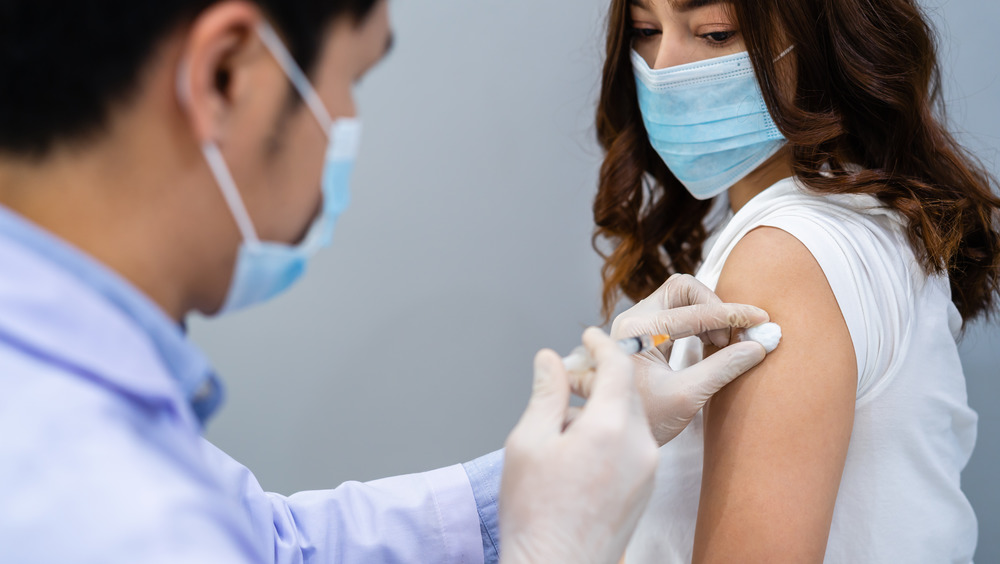Doctors Warn Of Delayed Side Effects From Moderna Vaccine
The rush is on and people everywhere are trying to get their COVID-19 vaccine, and for good reason. But a troubling skin reaction has some people thinking about pumping the brakes when it comes to the Moderna vaccine.
The reaction is known informally as "COVID arm" or "Moderna arm," and it first made waves in January, as reported by USA Today. And while the size of the reaction frightened some people, USA Today reported it was nothing to worry about. It turns out they were right. Even though the reaction is thought to be harmless, The New England Journal of Medicine has recently released a new letter advising doctors on how to approach COVID arm.
As the lead author on the paper states, the letter was written in the hopes that more doctors will become aware of the relatively rare reaction. This will, in turn, allow doctors to reassure patients who might be concerned if they developed the signature raised red rash.
"Our immediate goal is to make physicians and other care providers aware of this possible delayed reaction, so they are not alarmed, but instead well-informed and equipped to advise their patients accordingly," wrote Dr. Kimberly G. Blumenthal (via Massachusetts General Hospital).
Dr. Blumenthal is the co-director of the Clinical Epidemiology Program at Massachusetts General Hospital. She specializes in Rheumatology, Allergy, and Immunology, which has given her the skills necessary to advise on this unusual side effect, simply because COVID arm is essentially a delayed, localized allergic reaction.
Cases of this signature rash by the numbers
The reaction isn't too dissimilar to a mosquito bite, and the comparison might seem too simplistic — but it's fairly accurate. Mosquito bites turn red, swell, and itch because the bite releases chemicals into our skin that triggers an immune system response. The Moderna vaccine does essentially the same thing, although the reaction can be palm-sized. A press release from Massachusetts General Hospital earlier this month referred to it as a "delayed allergic immune response."
"For most people who are experiencing this, we believe it's tied to the body's immune system going to work," says Dr. Esther Freeman, director of Global Health Dermatology at MGH, and a co-author of the letter.
The initial cases of this side effect were recorded after 12 people out of 30,000 trial participants reported the rash. Of these 12, one was misdiagnosed with a skin infection and prescribed antibiotics. Others treated the rash using corticosteroids, a class of drugs described by the Cleveland Clinic as anti-inflammatory medications used to treat skin conditions and some forms of arthritis. But most of the 12 people originally affected by Moderna arm simply used ice and over-the-counter anti-allergy medication.
The thing that sets this apart from other types of allergic reactions is the time it takes to develop — most cases started six to 11 days after vaccination. A week or so after that and the rash was gone. Researchers are still looking into why the rash takes time to appear, however. They ask anyone who receives the Moderna vaccine to report allergic reactions to their research registry.
Should you still get the COVID-19 vaccine?
A person's chances of developing COVID arm are incredibly low — 12 people out of 30,000 comes out to less than 0.05 percent. Dr. Freeman voiced some concern the number might be slightly higher, as the original 12 were only those who developed the rash eight or more days after vaccination. But she also cautioned that people have allergic reactions to standard vaccines as well.
And there is good news for those small percentage of people who may develop this side effect. Of the 12 who have reported cases, only six reported another case after receiving the second shot, and none of them had a worse reaction the second time. Three of those people had a similarly negative reaction to their first vaccine and three had a slightly less negative reaction, according to the findings sent to The New England Journal of Medicine.
There is a lot of concern around vaccines right now. And when people hear about a 'giant' rash that might develop after they get their Moderna vaccine, it makes sense that they would be worried. But any given person's chances of developing Moderna arm are less than 1 percent, and there is no indication that the second round of vaccines will create a more aggressive reaction and may, in fact, cause no reaction at all. Even if it does, those who have experienced it have recovered completely without lasting effects.
As Dr. Blumenthal put it in her letter, "Whether you've experienced a rash at the injection site right away or this delayed skin reaction, neither condition should prevent you from getting the second dose of the vaccine."



